Striping
Examples
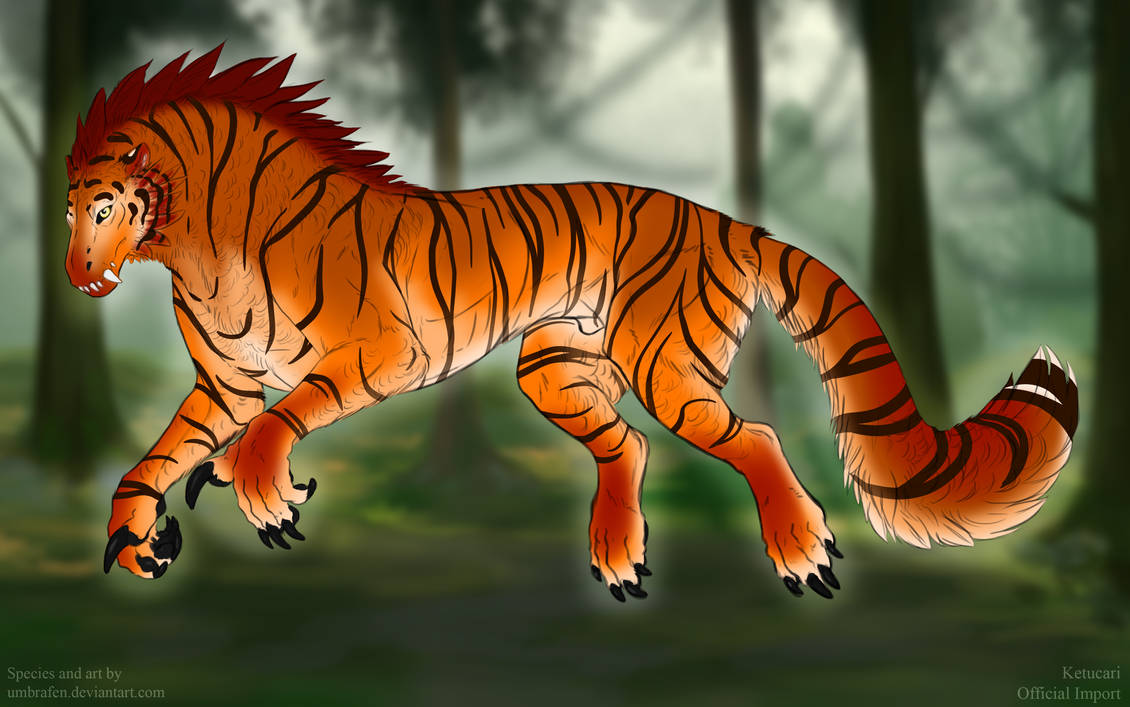
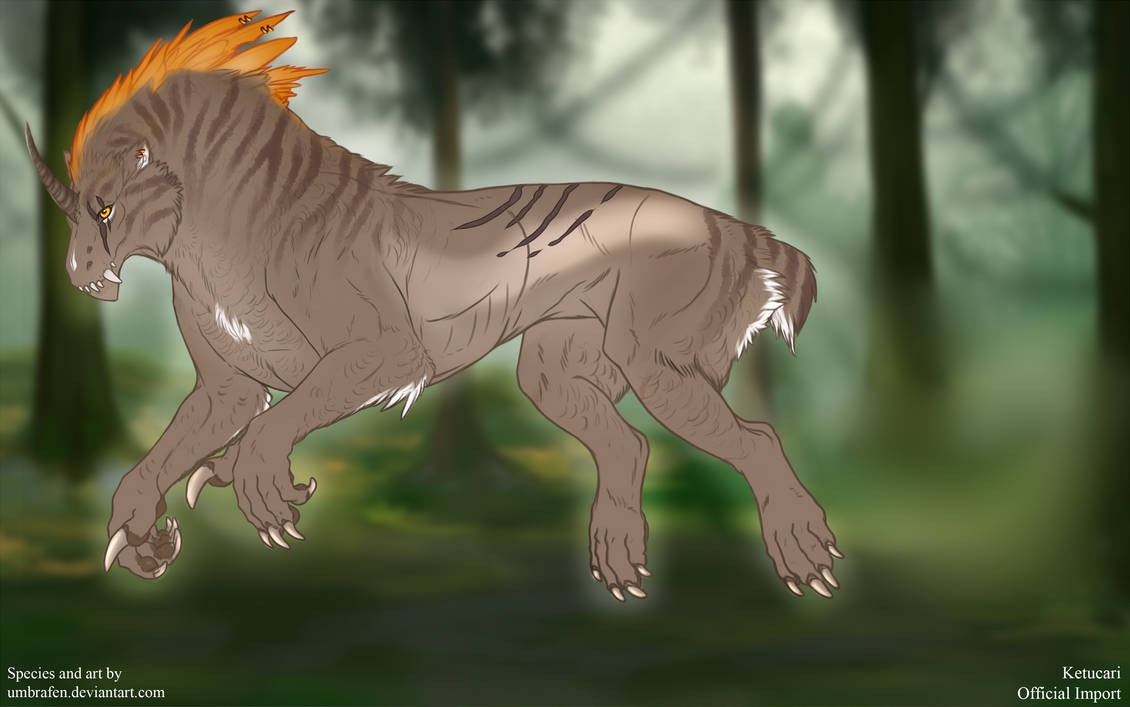
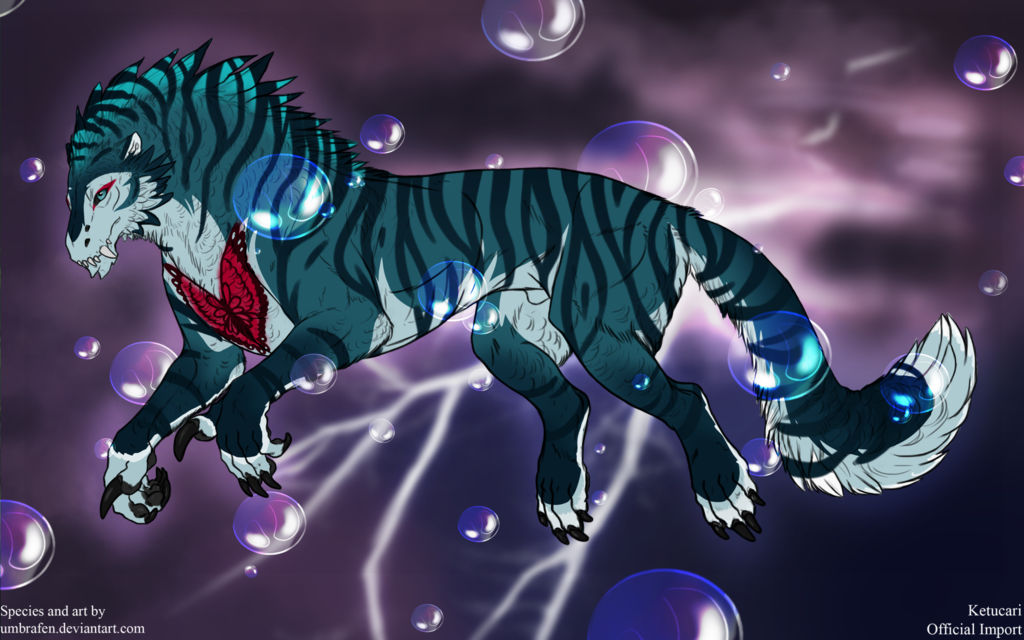
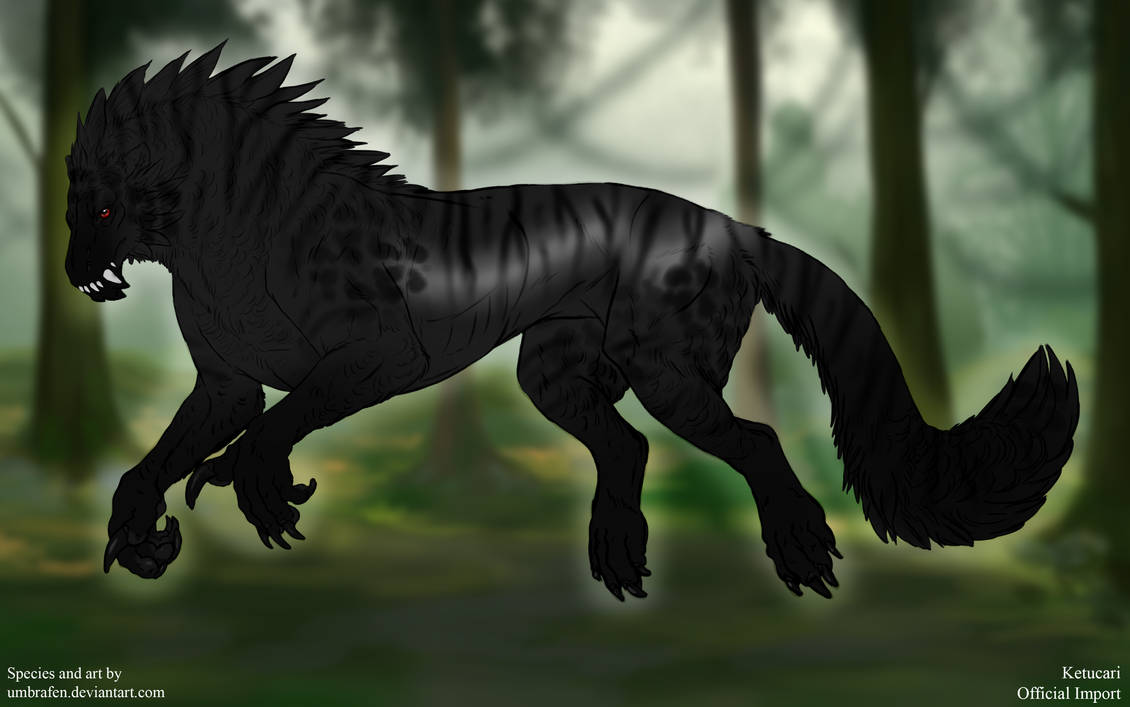
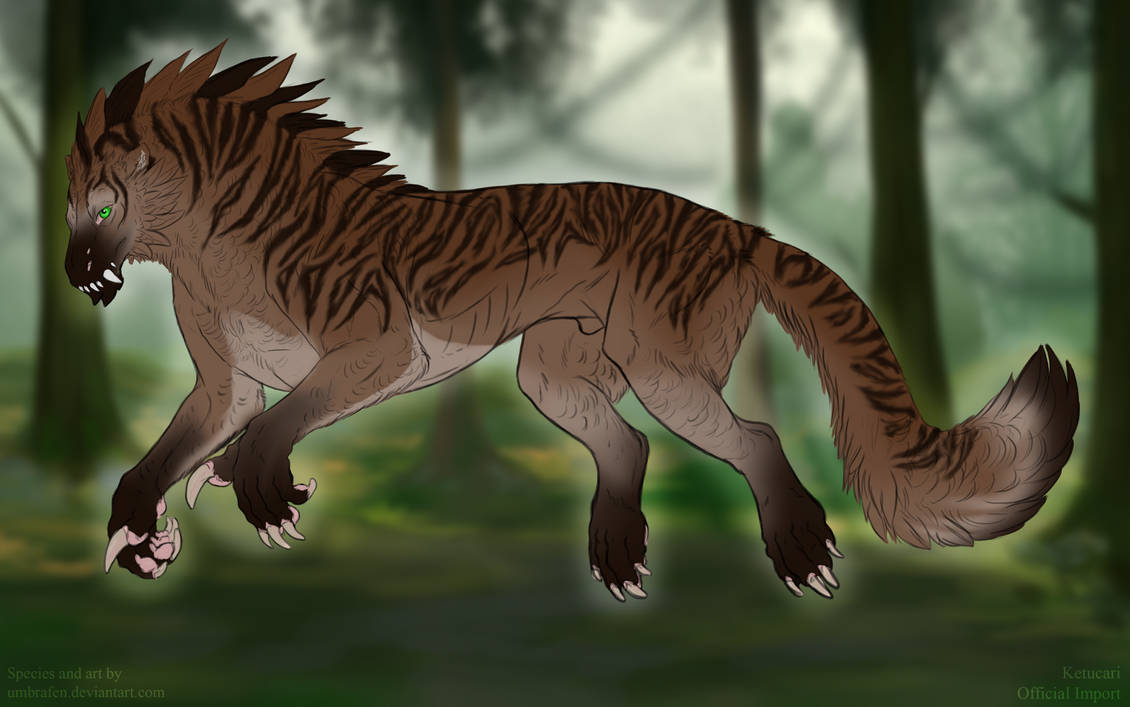
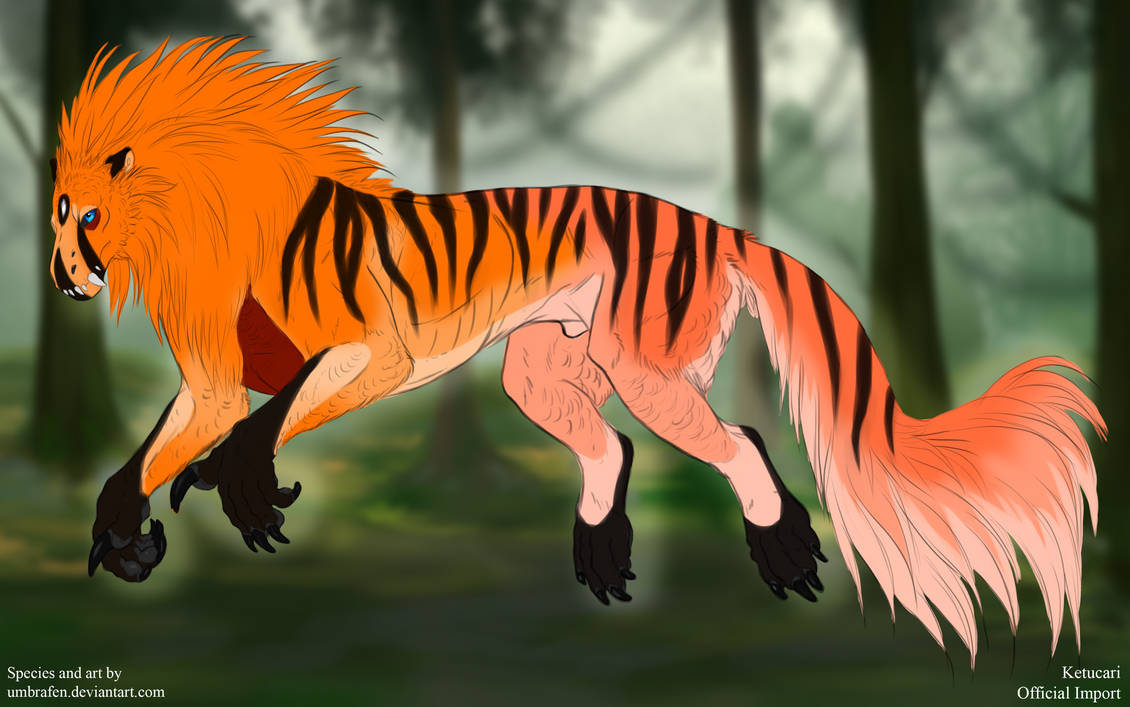
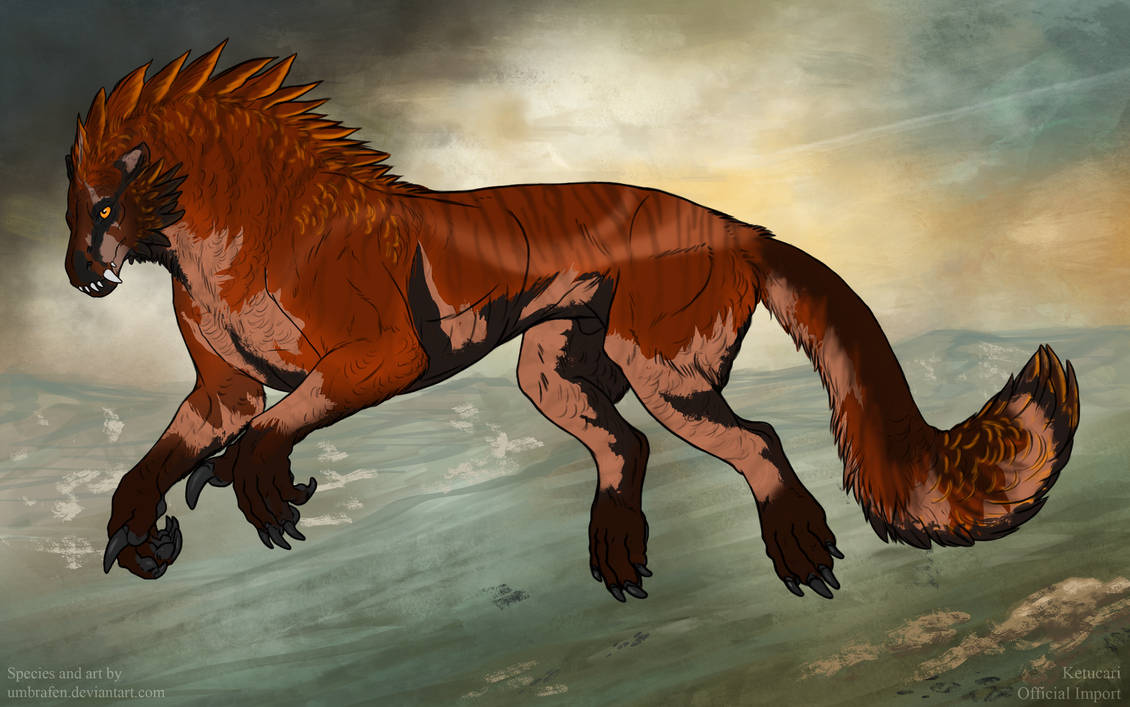
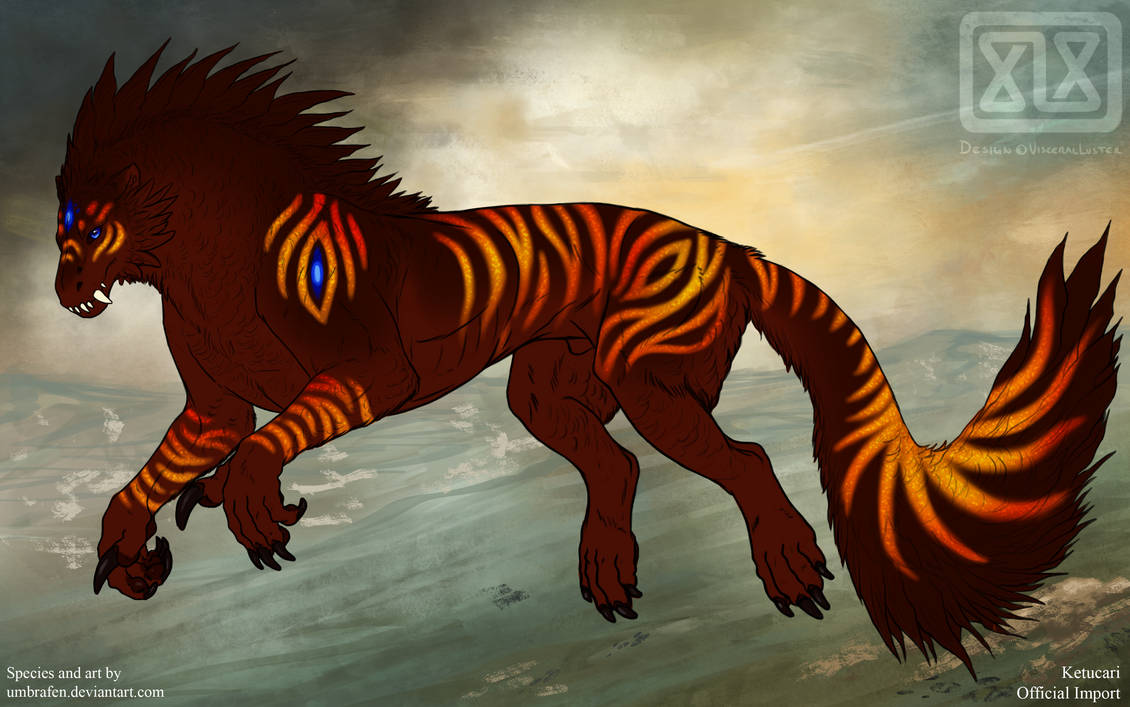
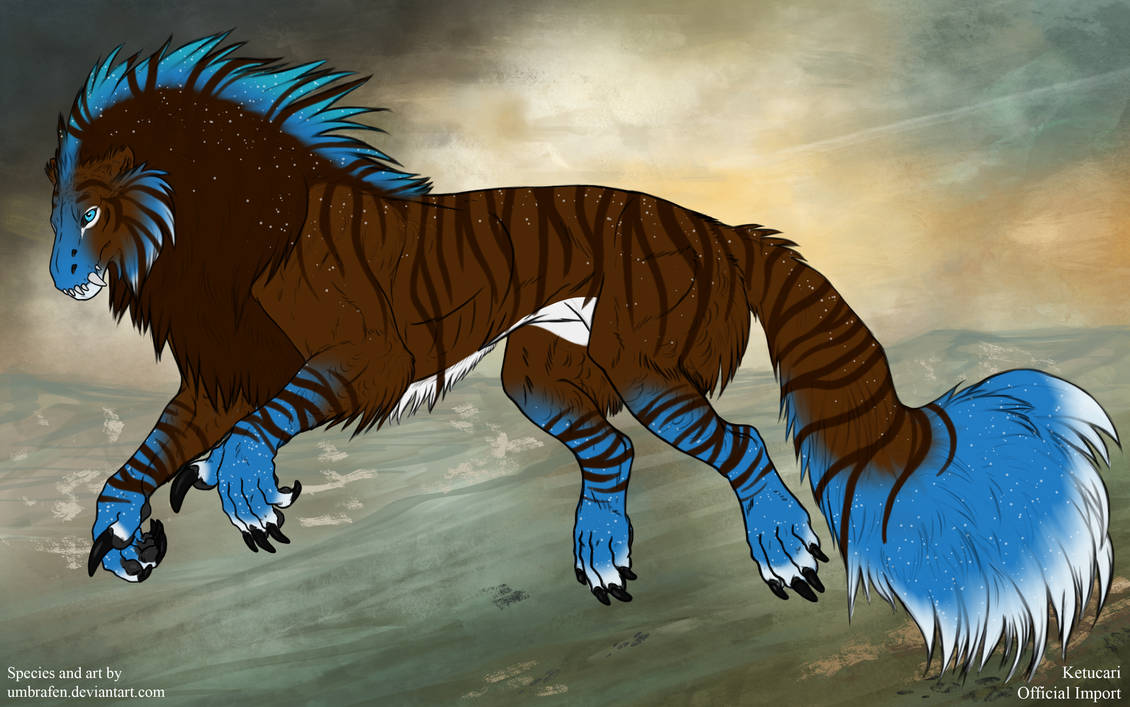
Basics
Color
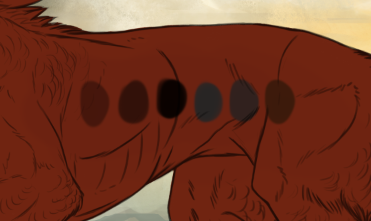
These colors would be acceptable for this base color. They are either a darker version of the base, or a darker and desaturated version of the base. The last color on the right shows a minor deviation in hue, and is slightly more yellow than the base itself. Notice that this small change is not overbearing.
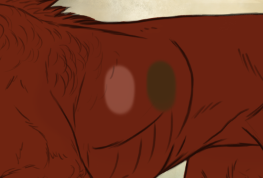
These colors would be unacceptable for striping. They are either lighter than the base coat or have too drastic a hue shift.
Range
Striping vs. Similar Markings
Be careful that Striping doesn't too closely resemble lacing or marbling.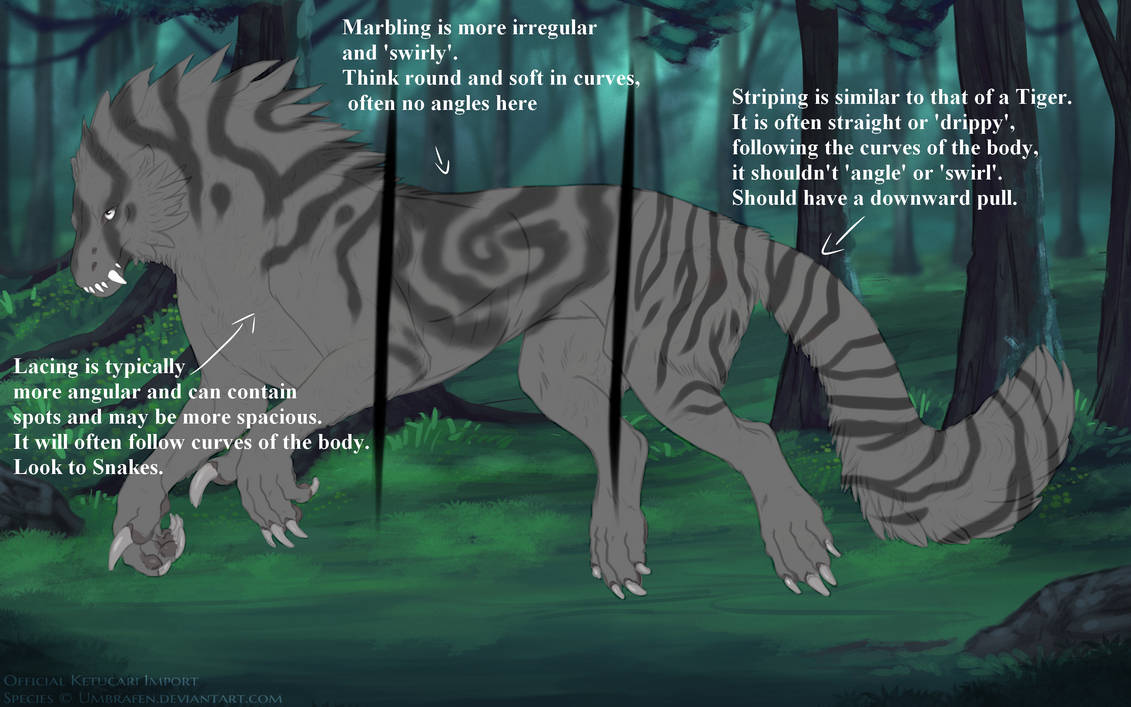
Interaction with Other Markings
Accents
